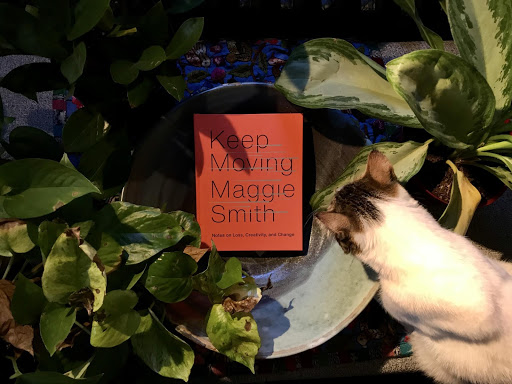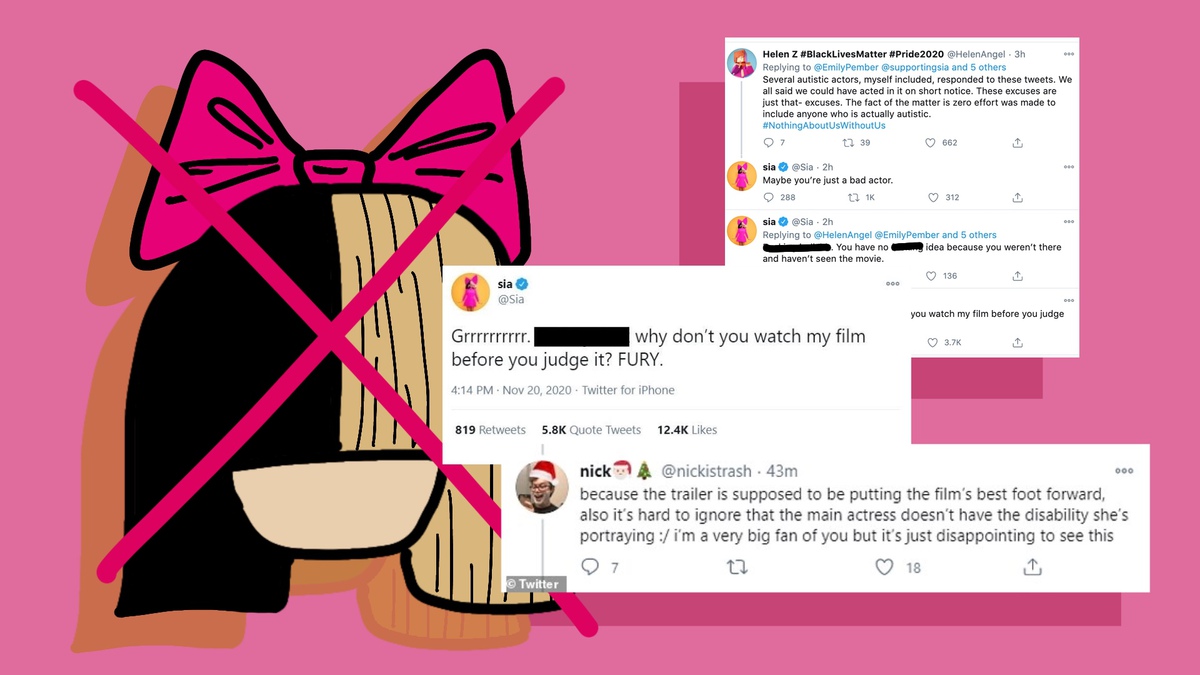The pandemic sucks. From isolation, to trauma, anxiety, or even the loss of a secure routine, life in the time of COVID-19 fosters a lack of energy to do, well… anything. To shed light on this, the Nuveen Center and the Student Advocacy Alliance for Health and Disability (SAAHD) partnered to create a panel discussing mental health concerns at both SAIC and beyond.
SAAHD said it was concerned after seeing the CDC report on mental health in the United States, which showed a rapid decline in mental health during the pandemic, especially in young adults. The Nuveen Center hoped to “open up a discussion about how mental health stigmas among different cultures might pose different challenges to our students in addressing their own relationship with mental health.”
Three panelists, Töng Pan (BFA 2021), Kate Morrick (MFA FMS 2022), and Storm Butti (BFA 2023), discussed how their mental health had been impacted by the pandemic and other pressing issues on Tuesday, Nov. 10 via Zoom. Lo-K Leslie (BFAW 2021), the Nuveen Center Coordinator, asked questions, while Jake Linn (BFA FVNMA 2021), President of SAAHD, chaired the discussion.
Kate Morrick was raised in a Cuban-American family with a primarily Roman Catholic upbringing. This encouraged her to turn to God when it came to mental health, instead of medical intervention. Morrick noted that because of her family’s need to assimilate, mental health was often “swept under the rug by way of trite phrases like, ‘you should be grateful for what you have,’ or ‘there are people who have it much worse than you.’”
“I didn’t believe I would ever be affected,” Töng Pan admitted. He said he felt as if mental health wasn’t as “clearly recognized in traditional East Asian families.” He found it difficult at times to broach the topic with some family members.
For Storm Butti, growing up in a single-parent household as the oldest sibling left her with a lot of responsibility. “The stigma I had around mental health was that it was a weakness because it made me dependent on the people around me. I wanted to be a grown-up and be there for my family during a really tough time. As I grew up, I began to understand that if I am not in a good place, it is really hard for me to help anyone else in an effective manner.”
Morrick brought up another example of stigma as a result of generational differences. he described an encounter with a group of grad students speaking about mental health, during which an older student asked, “Don’t you guys think all this mental health stuff is a little high maintenance?” A younger student responded, “No, this is what it looks like when people take care of themselves and others.”
These generational differences are coming to the forefront as many students are displaced during the pandemic, often forced back home to their parents. Butti flew back to India during COVID-19 and found herself, like many, “in a place where you are not doing your best, but having to continue to exist there, take care of yourself, and grow from the trauma you may have.”
Facing this plethora of outside pressures, all three panelists called for societal change when it comes to mental health. Morrick quoted “Depression: A Public Feeling” by theorist Ann Cvetkovich, in an argument about rethinking mental health and how it often stems from social problems:
“Within Western therapeutic culture, it is customary to attribute feelings of depression or anxiety to either (a) bad things that happened to us as children, or (b) biochemical disorder. It can be useful to view these master narratives as sometimes problematic displacements though in that, by nature, they cast problems of the social as either problems of the personal and/or medical.”
Because of these influences on mental health, it’s important for therapists to relate to the experiences of their client. Leslie, in an email interview after the panel, said she thought that SAIC could improve health services’ representation and communication. “Identifiers like race or gender identity can impact a person’s experiences [in therapy] and sometimes it’s not as comfortable to open up about those things if the person sitting across the room has little to no understanding of those experiences.”
Some students reported trouble accessing counseling sessions. A TA who requested they remain anonymous reported that many of their students, primarily freshmen, reported that around Thanksgiving, counselors were completely booked up, and students had to be put on a waitlist.
At the end of the panel, students were able to ask questions. One student asked, “2020 seems to have taught us there is no return to normal. What are you excited about as we confront our new normal?”
SAAHD leader Jake Linn said he thinks that “This has created more equity. I think it’s going to create empathy for people with disabilities; our struggles, and I hope this will continue where we use Zoom and Google Hangouts” for people who need remote learning.
In the introduction to their poetry collection, “You’ll Understand When You’re Older,” Ben Kim Paplham (MFAW 2021) shared a similar sentiment. “The energy I had spent in semesters past — grocery stores and trains and elevators and stairs and office doors and backpacks and countertops and cracked sidewalks and city noise and crowds and wide puddles and the bigness of life — simplified to me. My computer. A schedule I could actually wake up knowing what to expect. Not having to walk everywhere.”
During the discussion, another student asked, “With the pandemic, quarantine, and civic unrest, what do you think about the body not being built to handle this much stress? How do you think this affects a student body or a city body?”
Leslie said “I am constantly aware of how disconnected we are via social media. When I see things are happening, it’s a toss up if I view it with extreme stress or anxiety or just something on my feed.” Also known as Doom Scrolling, the constant bombardment of news via social media has taken a toll on mental health.
“I think it’s important to be thinking about how to establish and accept how crazy things have been and from that give yourself a break and others break,” Butti commented.
Linn summed up his response in an email to me: “Our bodies are able to withstand so much. I mean, we are supposed to live for a century. The bigger question is how do you handle that stress. Do you take it all in or does it flow over your head? Do you take it out on people or no? Learning how to deal with stress is a lifelong journey. This is especially true during the extenuating circumstance we are living in. That is why it is vital to be cognizant of everyone’s fluctuating mental health and learning how to cope with stress. We must be kind to one another and give the benefit of the doubt so we can come out of this tragic time in one piece.”
When I was younger, my mother did not return home from work one day. She had been hospitalized. She had been so stressed by her job that her blood pressure had spiked and she fainted. She had two choices: continue her job which was a risk to her life, or quit in a rural area strapped for jobs, and face financial hardship.
As Ann Cvetkovich’s quote points out, this situation reflects how the systems in our lives impact both our mental and physical health. I suggest the term “bodymind” — in disability studies, the term reflects on how inseparable the physical and mental mind are for those who are disabled.
Mental health panels like this provide a platform for panelists to open up and a place for the community to consider the ramifications. Unless we make a space where we can talk about these issues, we won’t know who is in need and what the school can do to better provide resources.







